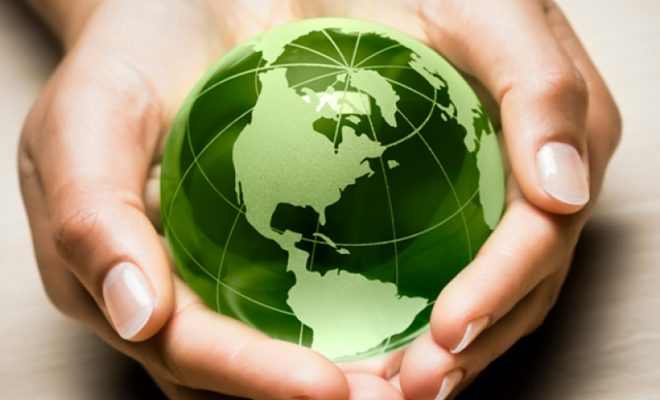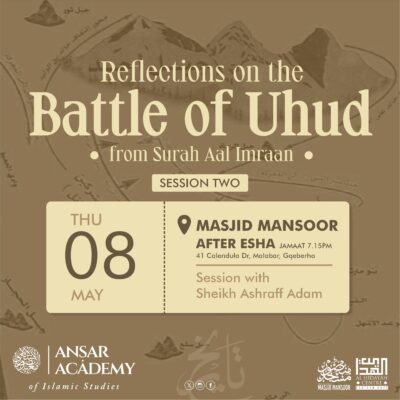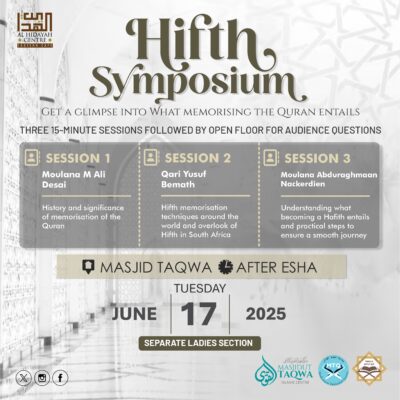Ibrahim Abdul Matin, author of the book “Green Deen: What Islam Teaches About Protecting the Planet,” starts that book off with this line: “The Earth is a mosque, and everything in it is sacred.”
This essentially sums up Islam’s view on humanity, nature, and the balance Allah Ta’ala created among it all. It reinforces the fact that humanity is Allah Ta’ala’s representative on this planet which they populate fleetingly. This responsibility is outlined in the Quran:
And it is He (Allah) who has made you representatives upon the earth and has raised some of you above others in degrees [of rank] that He may try you through what He has given you. (Quran 6:165)
Environmental Plan
There is a thought-provoking verse in the Quran: “Corruption has appeared on the land and in the sea because of what the hands of humans have done.” [Quran 30:41]. This is a striking verse when one looks at recent history, not to mention the data available on current problems such as climate change, deforestation, desertification, water and air pollution, the ever-growing endangered species list, and the dwindling of resources, to name a few.
As the Quran points out, humanity is allowed to utilize the resources of the earth but conditionally: “Oh children of Adam! …eat and drink: but waste not by excess, for Allah loves not the waster.” (Quran, 7:31)
Prophet Muhammad sallallahu alaihi was allam was himself a pioneer of the environment. He had a profound respect for Allah Ta’ala’s creations and his lifestyle was one of simplicity and minimal waste. He was an advocate of the sustainable use of water, land and other resources. He emphasised the rights of all its users, both human and animal.
There are Hadith where the Prophet sallallahu alaihi wa salalam emphasises the planting of trees, curses animal cruelty and praises those people that have shown acts of kindness towards animals. He taught us that caring for the creation is a form of worship to its creator. The companions and successors of the Prophet sallallahu alaihi wa slalam lived simply, and promoted cultivation and the just treatment of animals.
Eco Friendly Hajj
The impact of anything done by the Hajj pilgrims is amplified due to the large numbers concentrated within specific areas. Pilgrims can enhance their Hajj, and potentially increase the rewards, by making a conscious intention to take the eco system into account.
One example is that of plastic bottles and bags. If pilgrims undertake to bring less of these products, which are not environmentally friendly, it would have a significant impact. Multiply this individual effort by the 2.5 million pilgrims and do the math.
In 2010, around 100 million plastic bottles were left behind on pilgrimage sites which could easily have been avoided.
Pilgrims should also consider buying fair trade products and conserve hotel resources such as lights and water to minimize wastage.
Community
Keeping the environment sanitary maintains the community. “Beware of the three acts that cause you to be cursed: relieving yourselves in shaded places (that people utilise), in a walkway or in a watering place.”
Hygiene and cleanliness is so integral to Islam that it is actually a major sub-branch of Muslim belief. Without physical hygiene, prayers are broken. Without clean facilities pollution ruins cities, and without any effort to improve one’s own purity, it becomes more difficult to prevent external corruptions like littering.
Thus, the Prophet sallallahu alaihi wa sallam said about street clean-ups, “Removing harmful things from the road is an act of charity.”
Recycle
Consider recycling and fixing before buying new items. When asked about how the Prophet sallallahu alaihi wa sallam used to live in his house, his wife, Aeysha radhiallahu anha said that, among other things, that he used to repair his shoes.
Let the following Hadith be the incentive for Muslims to take up the eco friendly challenge: “The world is beautiful and green, and verily God, be He exalted, has made you His representatives in it, and He sees how you will work.” (Muslim)
This Hadith encourages us to use the earth’s resources in such a way that we leave it as a sustainable legacy for the coming generations.
____________
Further Reading:
The Green Guide for Hajj by Dr H. Ahmed provides the pilgrim with simple instructions on how to implement a green Hajj. Download it at http://www.arcworld.org/downloads/Green_Guide_for_Hajj.pdf








COMMENTS